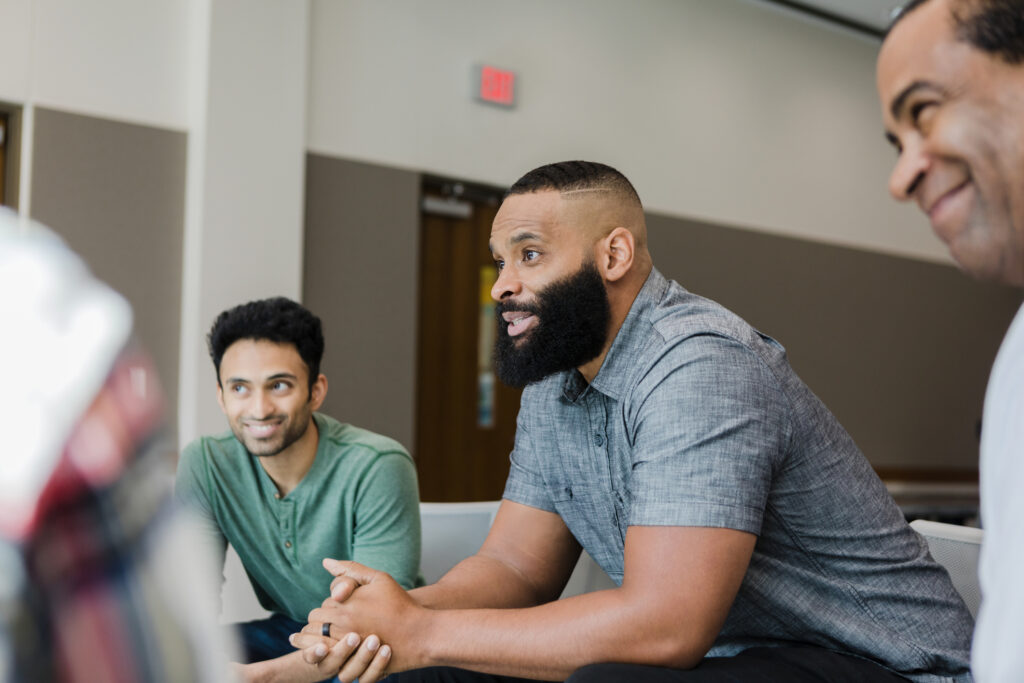Whether you are facilitating a meeting or interested on creating one this page is for you.
Meetings are independently run, and most follow one of the main programs but some follow just the general format of meditation, discussion and dharma study.

You can read about the programs here and below each you can find links to many downloads related to them. Many meetings are organized by a regular facilitator but some are not, e.g. Recovery Dharma has a peer-based format.
While you can have a meeting without aligning to a program, studying the programs, reading some of their resources and attending other meetings are great ways to get your framework figured out and hopefully one will resonate with you. And along the way gather some material to study during your meeting.
Safer Sangha
We are actively growing our resources related to making meetings a safer space for all attendees, you can find more resources on the Safer Sanga page.
Meeting Format Resources
Overview of the various Buddhist Recovery Programs
Recovery Dharma
- Meeting format and Preface
- Guided meditations
Refuge Recovery – Meeting Resources
Heart of Recovery – Shambala.org
Kevin Griffin –
You can find Kevin’s latest Group Guidelines and Downloads on his website. But also some time back Kevin synthesized some advice on creating new groups based on a survey of the different formats. This can be found in the BRN Group Guidance PDF download. It covers group intention, leadership, membership, and form and content, as well as examples of other groups.
‘Sit & Share’ Recovery Meeting format and meeting workbook by Vince Cullen – Workbook includes topics suitable for discussion in Buddhist recovery groups. (5thprecept.org)
Sample Meeting Preamble – This is a sample of what a facilitator (or another person present) can read at the beginning of each meeting. [PDF]
Mindfulness for Recovery: Buddhist ‘Sit & Share’ Recovery Meeting format
Northwest Buddhist Recovery facilitator guidebook by Debra Greenfield – This workbook was compiled for our 2013 facilitator workshop, to support new facilitators in establishing and running a Buddhist recovery meeting.
From-Hungry-Ghost-to-Being-Human-(Taking-Sajja-Beyond-Thamkrabok) – by Vince Cullen This booklet is used as a study guide for 5th precept “sit and share” meetings. It is based on the teachings of the Thamkrabok Monastery in Thailand that emphasize a strict adherence to the 5th precept, and a vow of abstinence from intoxicants.
Listing or Making Changes to Your Meeting
When you are ready to list your meeting or want to make changes, the process is simple just email us at info@buddhistrecovery.org. If it is a new meeting we will need
- Meeting days and times
- Title for the meeting
- Meeting type (program and any other specialities)
- Physical address (if online, then just city and region)
- Location name (e.g. Name of a Buddhist or community center)
- If it is online, a URL on how to access the meeting (e.g. zoom URL even if people need to email for password)
- Public contact information for the meeting (email and/or phone)
- Any web-links you would like us to include
- Meeting description (e.g. a welcome message, special guidelines or notes, a specific book read) – this can be a simple or as detailed as you would like. But note that our meeting listing system does not allow us to format the text to add images, links, fonts, etc…
